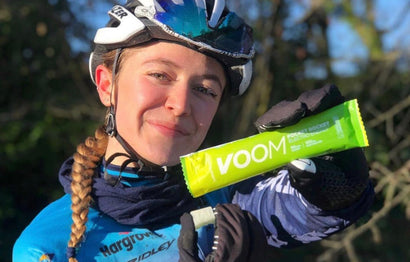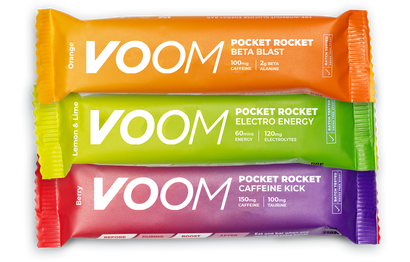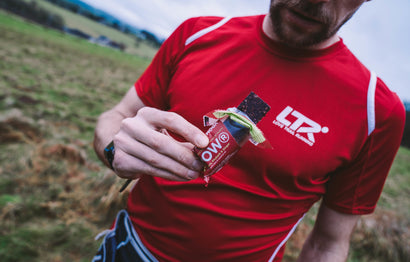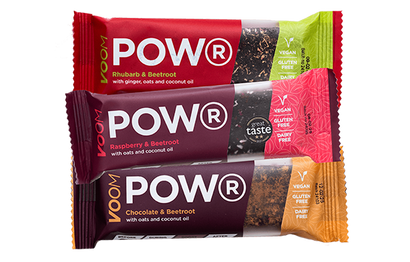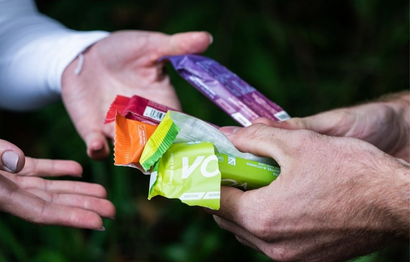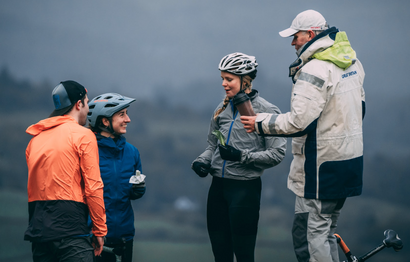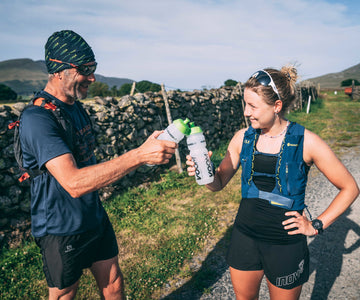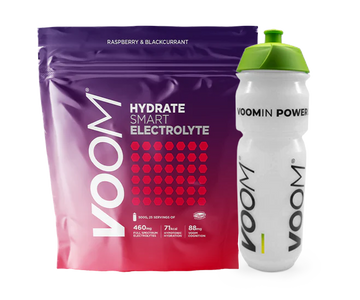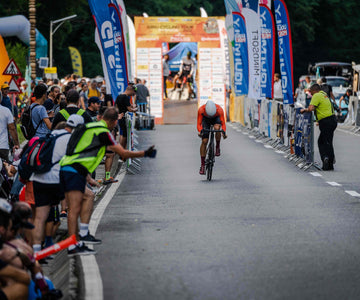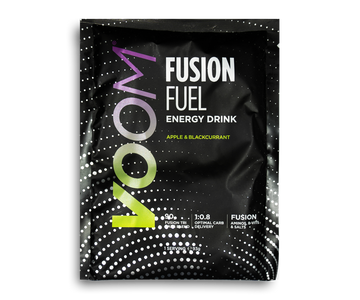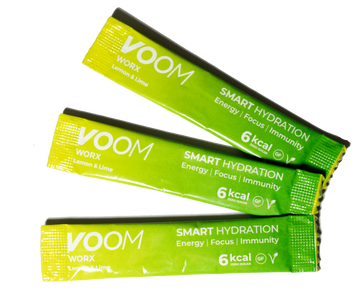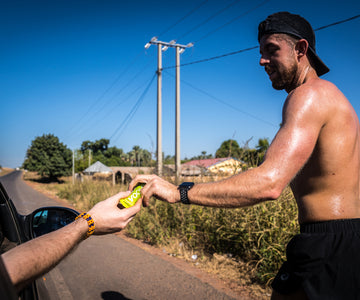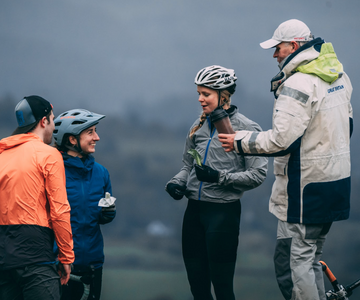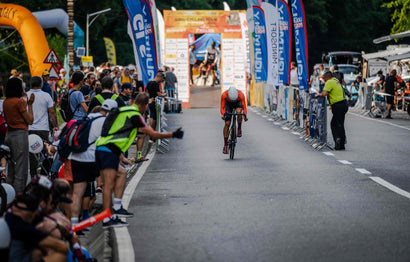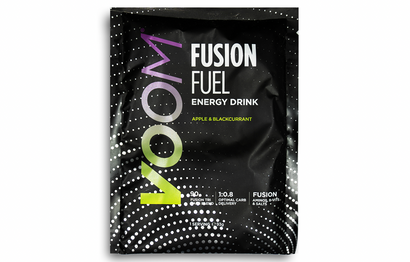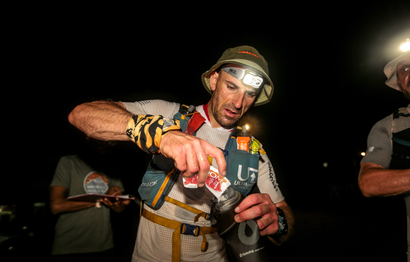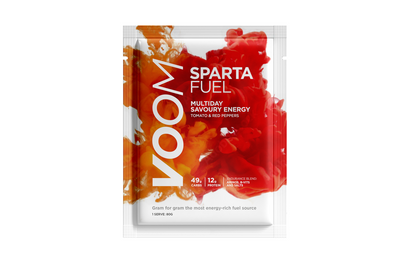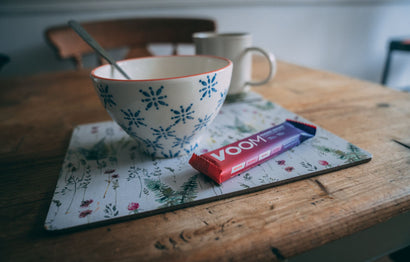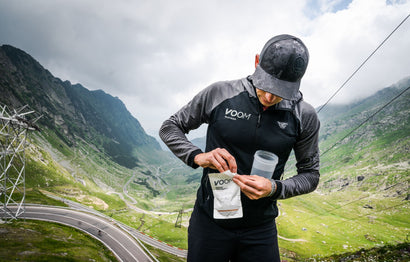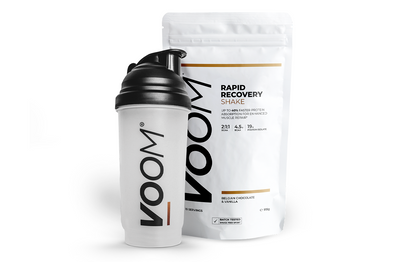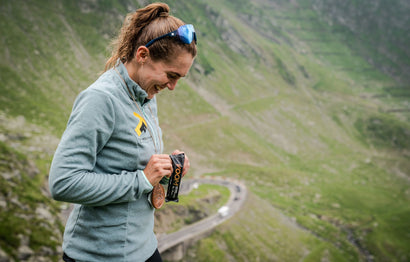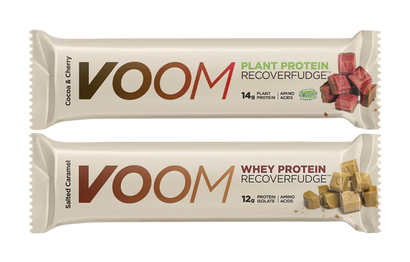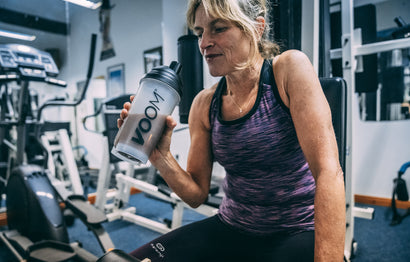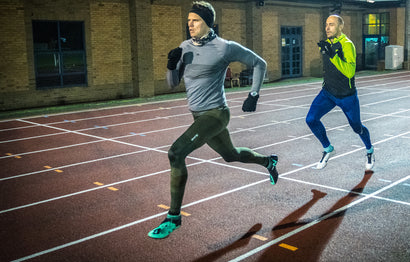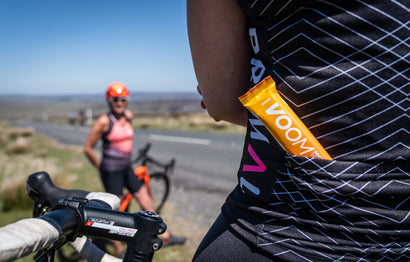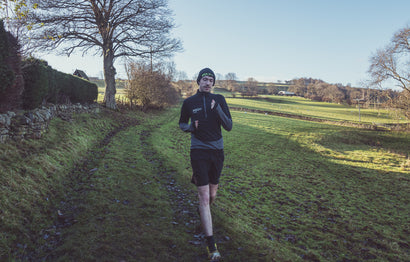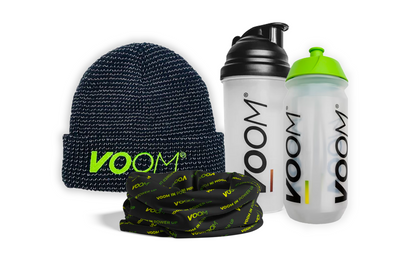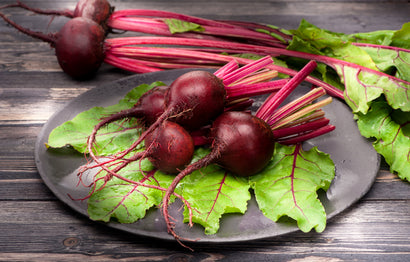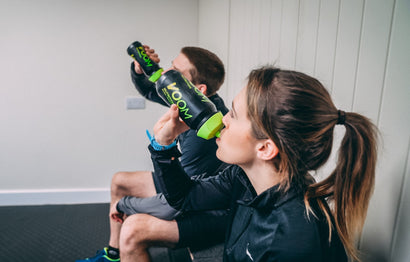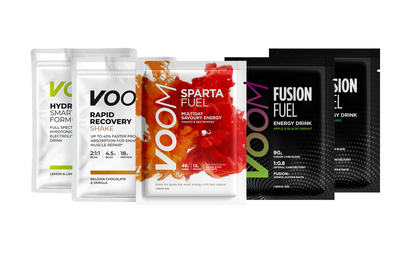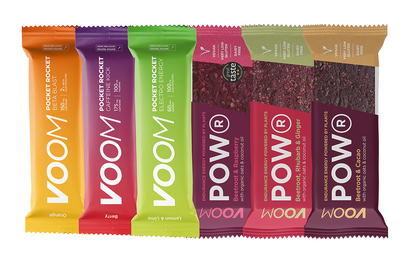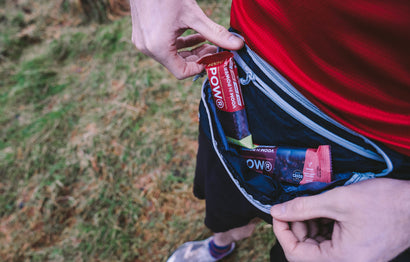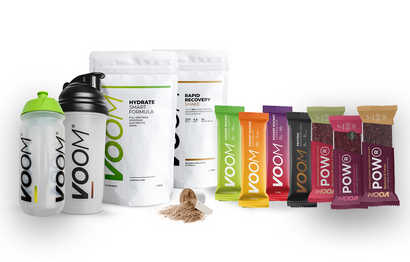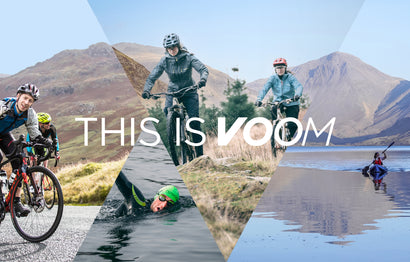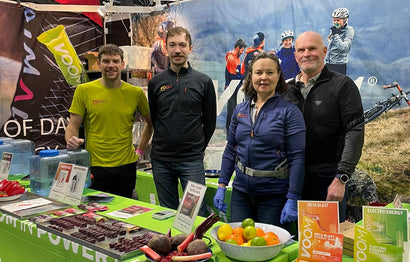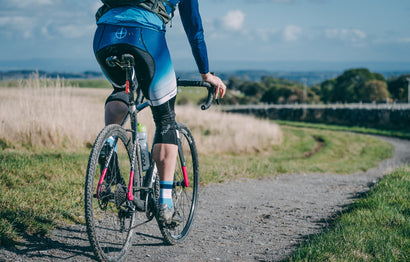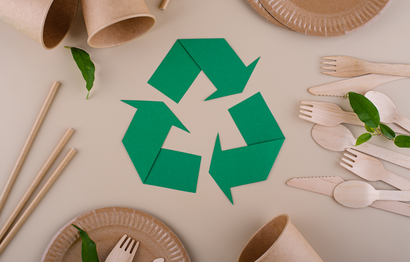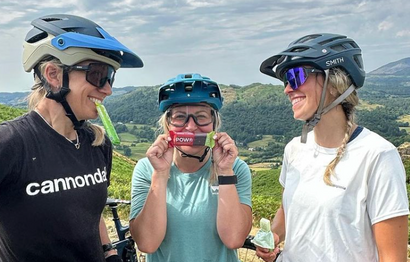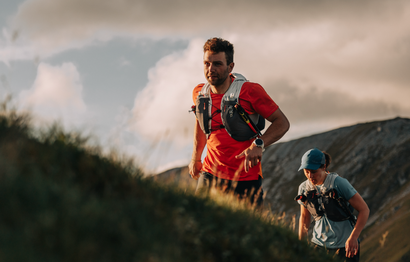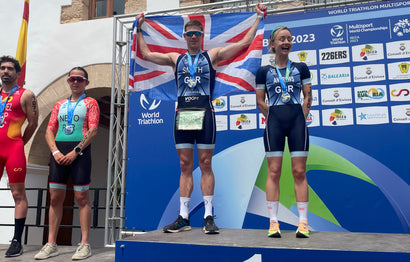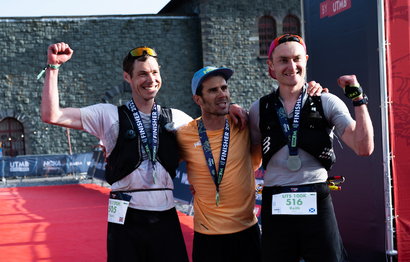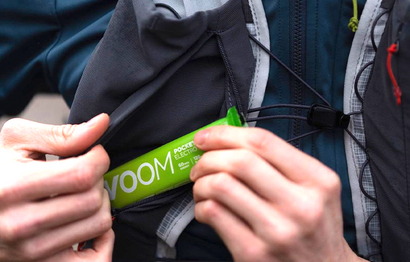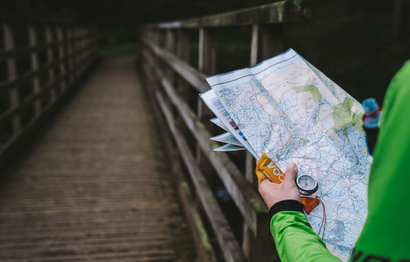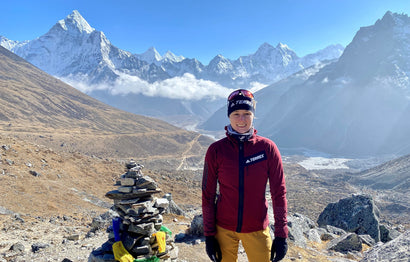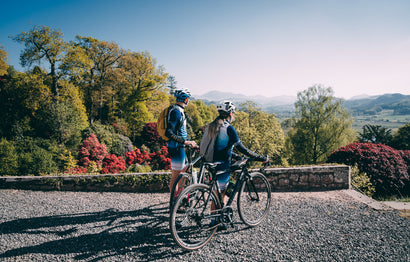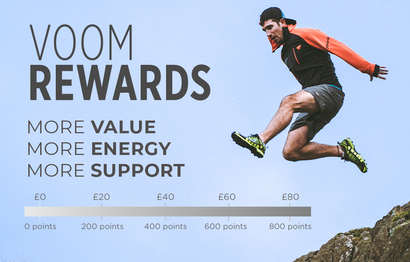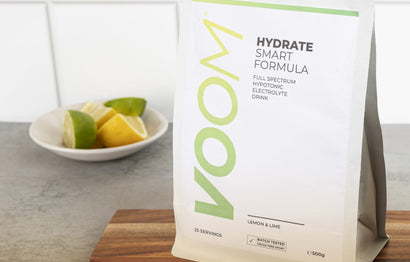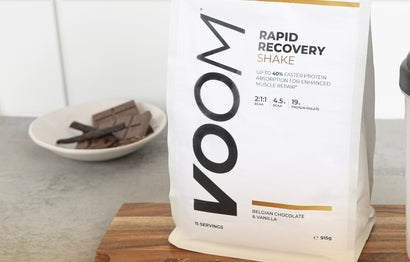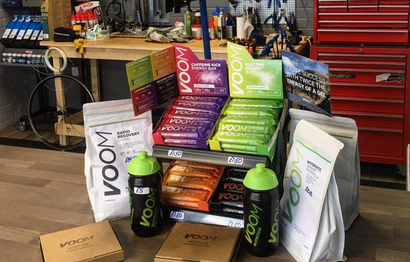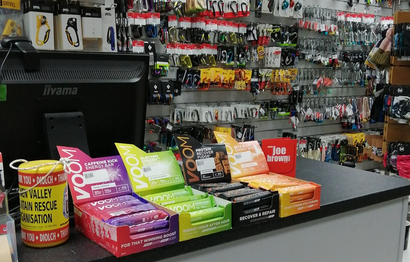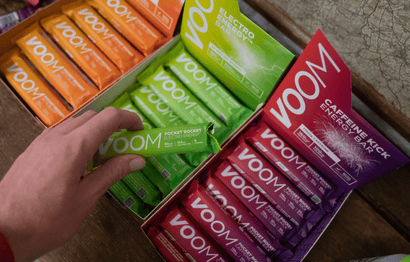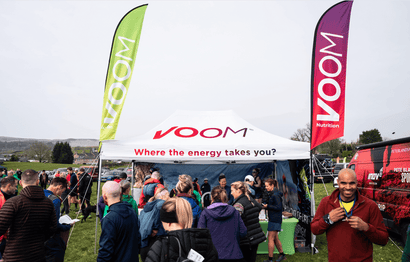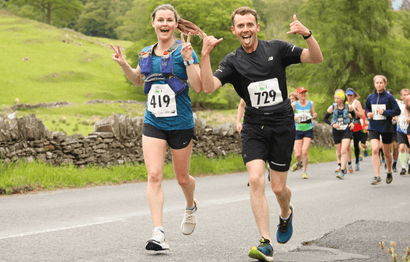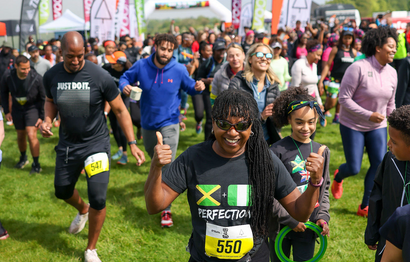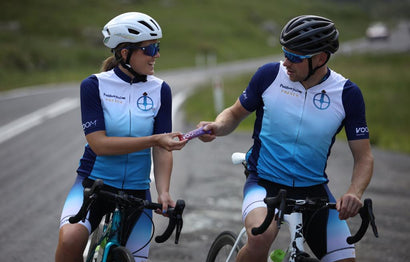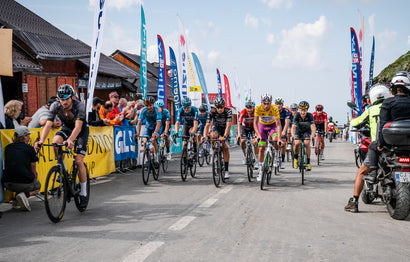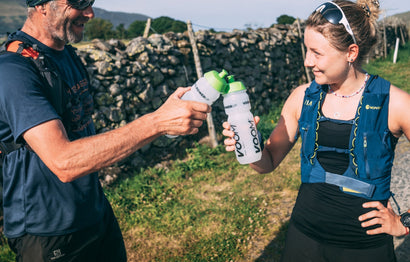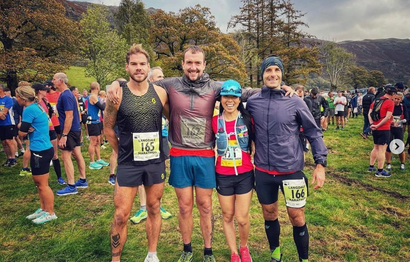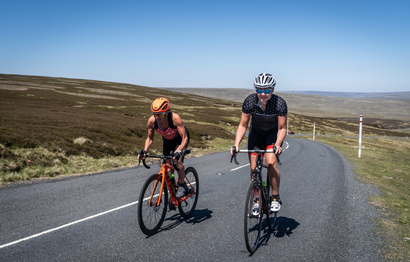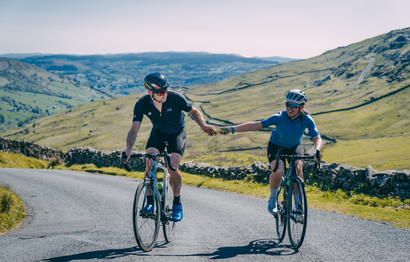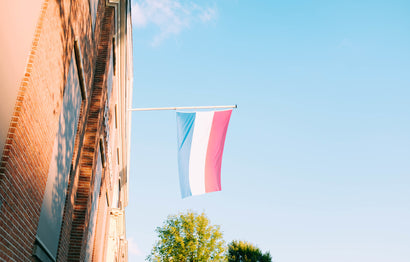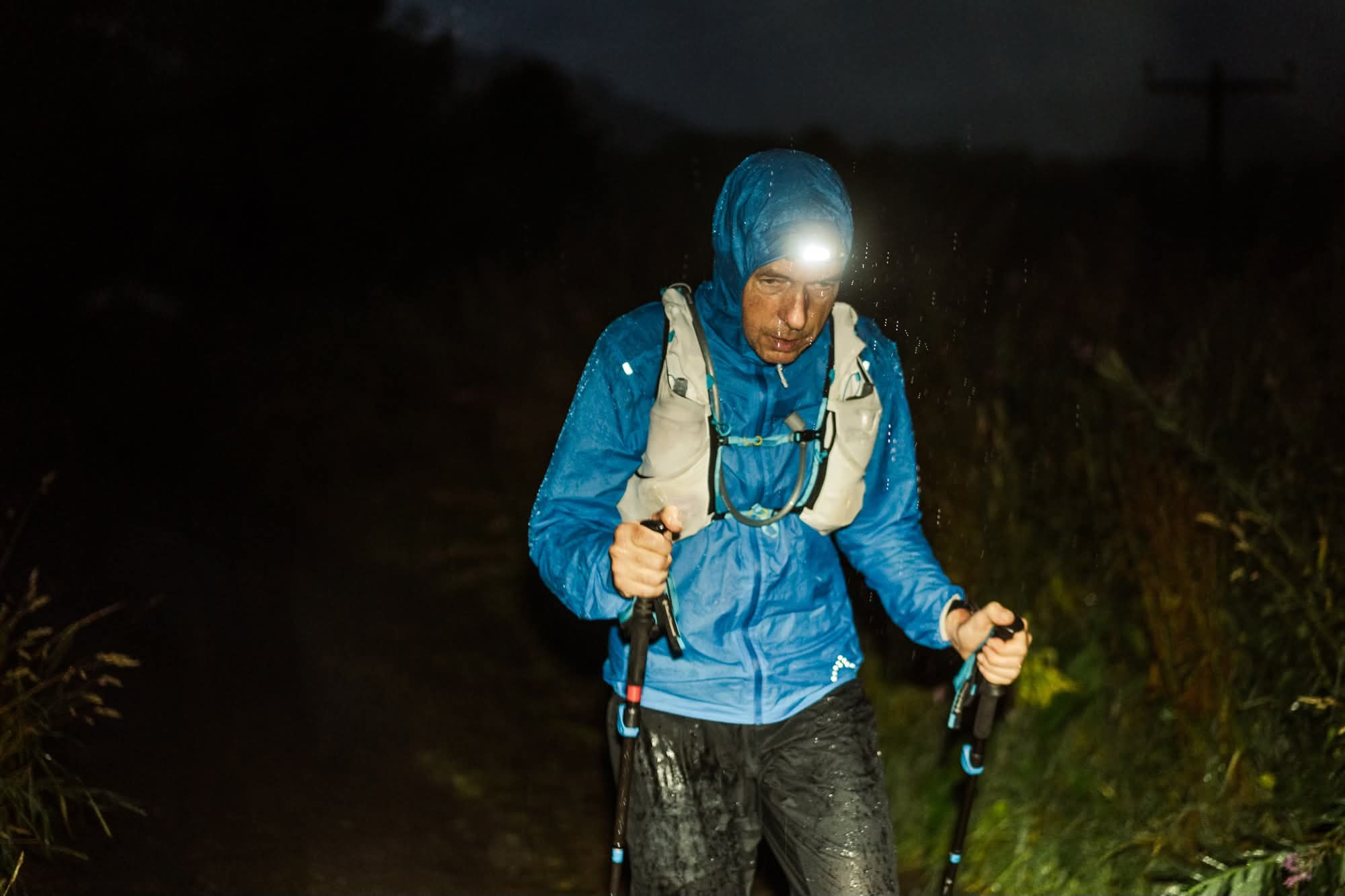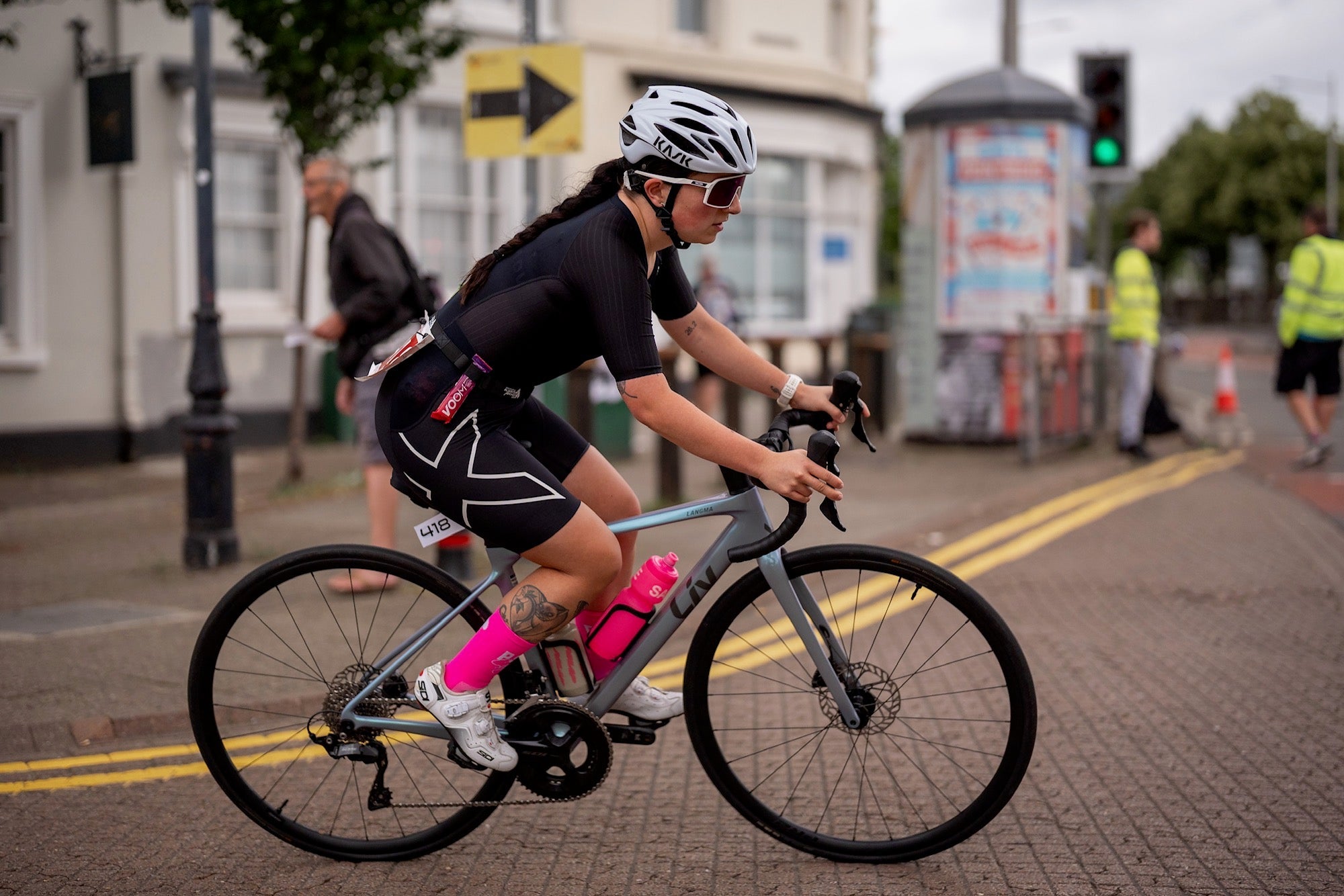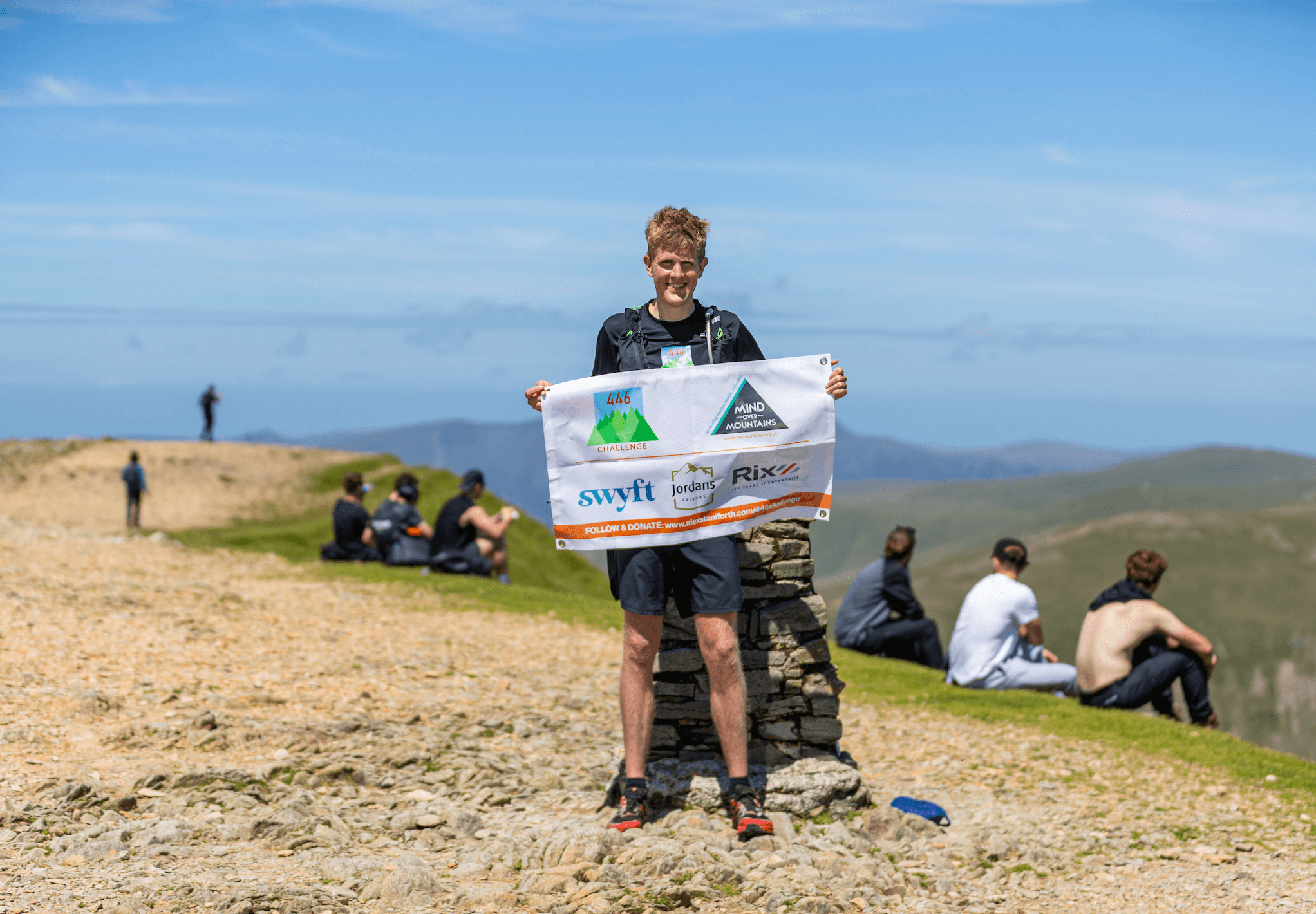The Lakeland 50 & 100 is one of the UK’s most iconic ultramarathon events, taking place each summer in the heart of the Lake District. Known for its rugged terrain, relentless climbs, and breath-taking scenery, the race attracts athletes from all over the world who are ready to test their endurance and mental resilience.
-
The Lakeland 100 is dubbed the “Ultra Tour of the Lake District” – a gruelling 105-mile journey with over 6,800m of ascent, circling the entire National Park.
-
The Lakeland 50, while shorter, is no less of a challenge. Spanning the second 50 miles over the Lakeland 100, the route takes you from Dalemain to Coniston, runners tackle 3,100m of climbing over technical trails, rocky descents, and relentless hills.
This year, VOOM ambassadors Dan Weller and Mark Attwood took on the Lakeland 50 – Dan finishing with an outstanding 3rd place podium, while Mark battled through the course to complete one of the UK’s toughest ultra-distance races. We caught up with them afterwards to hear about their experience.
Q&A with Dan Weller & Mark Attwood
The Lakeland 50 and 100 is a special event, what made it special for you?
Mark: The Lakeland 50 was special to me because of the scale of the camaraderie, it’s such a huge event and arguably Britain’s most premier trail race. It’s a pleasure to be amongst likeminded runners partaking for a wide variety of reasons but all with that same end goal of reaching the finish line, whether taking on the 50 or the 100.
Dan: It's definitely one of, if not the coolest ultra in the UK. It's hard to say whether it's more like an endurance event or a festival, and loads of people go back year after year. It's got great volunteers, and everyone who does the race raves about it. It was even more special for me given that I dropped out at mile 90 of the 100 miler in 2024, so I really wanted to do well at the 50 this year.
How did you find the atmosphere on the start line, were the nerves of excitement stronger?

Photo credit: No Limits Photography
Mark: The looks on the majority of the faces in the crowds seemed to definitely be on the side of excitement, but I’m sure there were some significant nerves in a lot of us!
For me personally, I had so much build up going into this event that I was unbelievably excited to just get going, especially after DNF’ing a 100KM race back in June, when already 70KM in, it felt like I had a point to prove to myself, and I felt strong enough to prove it.
Dan: The atmosphere was pretty epic, you definitely know that you're about to do something big. I was stood near a few familiar faces which was nice, but I'd say I was equally anxious and excited.
Dan, you came away with an incredible 3rd place finish, did you go into the race with a podium in mind, or did it unfold as the miles went by?

Photo credit: No Limits Photography
I would be lying if I said I wasn't thinking about the podium from the beginning. The truth is, I was hoping to compete for the win, and that was probably a mistake in retrospect. If I've learned anything about racing ultras it's that racing them from the gun does not work (for me anyway).
Dan, how did you balance running your own race with the competitive side of things, especially in such a stacked field?

Photo credit: No Limits Photography
I probably didn't balance this very well, as I definitely pushed the pace a bit too much in the first 20 miles in an attempt to either be in the lead or stay in contact with the lead. Between Kentmere and Ambleside, I did make a bit of a gap at the front and was able to run my own pace for a bit, pushing the runnable uphills and relaxing a bit on the downs.
I probably got a bit complacent at that point and started to struggle with cramp and a few other issues. But on the climb out of Ambleside, I looked over my shoulder and saw Lewis (the eventual winner) not far behind. He and Andy (eventual 2nd place finisher) entered the penultimate checkpoint at the same time as me, and from there it was just a battle to get to the finish line.
I sort of knew I couldn't hold pace with those two, so I just tried to cover the last 8 miles as quickly as possible. The last climb in particular was a bit of a death march!
What was the toughest part of the course, and how did you push through those moments?
Mark: Not necessarily the course itself, but I had made the ultra-running equivalent of a schoolboy error. in packing my headtorch, I had not changed my batteries from a previous ultra, and as soon as I turned it on after passing Blea Tarn, I suddenly came to the realisation that it made no difference at all.
I ran keeping close to the few people slightly ahead, using their ambient light until I could get to a spot to change the batteries. It definitely cost me a fair bit of time and put me in a frustrated headspace momentarily making such a simple mistake, but we live and learn and it’s all a core part of both the process and the fun of ultra running.
Dan: On paper, the first two climbs are the biggest and the hardest, but because they come in the first half of the race, they don't feel so bad. For me, the last 8 miles were particularly painful, and the last mile and a half was what felt like a sprint to hold off 4th place, who I hadn't seen all day until the last descent.
The Lakeland 50 is notorious for its climbs, which section did you find the most brutal, and how did you manage your pacing?

Photo credit: No Limits Photography
Mark: For some reason, the ascent after checkpoint 2 sticks in my mind as this completely brutal endeavour, the heat baring down along with a relentlessly steep and seemingly super long ascent made for some very tough going.
For that section it became not about pacing for me but just getting one foot in front of the other, getting to that top point. Through the rest of the race, pacing in the moment was just making sure that by each checkpoint, I had enough to keep going and keep stomping along.
Dan: I definitely found the climbs in the last 8 miles most difficult. My legs were not cooperating by this point and the final climb up from Tilberthwaite seemed to go on forever. But it was undoubtedly the last mile and a half that was most brutal, forcing my knackered cramping legs to run as fast as they could to hold on for 3rd.
Did you have a specific nutrition strategy going into the race, and did it go to plan on the day?

Mark: I am a sucker for under fuelling, I’ll say that much. I had carried with me a selection of VOOM products (as is standard for me), because I know I can rely on these to get the job done, and because I know that when my appetite inevitably goes, I’ll still like the taste and texture of the Pocket Rockets, because I’ve trained almost exclusively with these and know that they work for me.
I carried a selection of Pocket Rockets, the Lemon and Lime Electro Energy Bars, Orange Beta Blast, and Berry Caffeine Kick's, along with a few sachets of the Lemon and Lime Smart Hydrate (my go to whether training or during a race, they simply do the job), and tried to use these each hour as I went, ensuring my carb intake was as often as needed(though arguably I could’ve eaten a fair bit more!).
Dan: I did have a plan, but it didn't quite work as I'd hoped. Because you don't get access to a drop bag on the 50 mile race, I decided to carry all my nutrition from the start, and potentially pick up a few bits at the checkpoints. To save weight and time, I gambled and decided to fill both my bottles with Fusion Fuel rather than opting for one bottle of water and one bottle with drink mix.
Though this often works well for me deeper into races, I think it meant I tried to take on a bit too much carbohydrate and not enough water early in the race. In retrospect, this was a very silly decision, because it takes about 5 seconds to open a packet of the mix and pour it into your bottle after an hour or two of racing.
But when you're planning pre-race, it's easy to get caught up thinking about tiny details which account for seconds, and forget the bigger picture. Ultimately, staying properly hydrated can cut huge chunks off your finish time. Anyway, lesson learned on that front.
What really did work well was saving the Pink Grapefruit Pocket Rocket (with 175mg of caffeine, 100mg of taurine and 50 mg of guarana) until halfway. That really did give me a bit of a kick in the bum, and meant that I ran a good chunk of the climb out of Kentmere and established a bit of a lead at the front.
That is something I would recommend to most runners, don't take too much caffeine early in the race, you're already amped up for the experience at the start, and you want the caffeine to have an effect later in the race when you're suffering.
Were there any standout moments on the course, either a high point that really lifted you, or a funny/unique experience?
Mark: Oh for sure, shortly after realising my head torch batteries were not quite going to see me home without a change, I fell beyond knee deep in a bog right in front of other runners(who were awesome in asking if I was okay!), a bog that I definitely did not see coming. I found that quite funny in the days afterward, not so much in the moment!

Photo credit: No Limits Photography
As high points come, the second I passed that 70KM point, I knew my demons from the previous ultra had been put to bed, and that was the same point I realized nothing was going to stop me from reaching that finish line, it was a feeling of freedom and pride, before even reaching it!
Dan: For me, the obvious moment of the race was when Lewis, Andy and I all arrived at Chapel Stile, 8 miles from the finish, at the same time. I was not particularly happy to be caught at the time, but they had certainly earned my respect for fighting through cramp earlier in the race to catch me back up. I gave them both a fist bump before leaving the checkpoint as a gesture of solidarity.
What role did your training play in preparing for the unique challenges of the Lakeland terrain compared to other races?
Mark: I have been very fortunate this year to have had a full year of varied races, from a VERY cold winter ultra in the remote Bowland landscape, to a VERY hot double marathon through the Jordanian desert, I’ve had a lot of time spent plodding along.
But where I am very fortunate is how close I am to the Lake District itself, it means I can actually get out in this landscape and put myself through training on the exact routes I’ll be on come race day. I have also been extremely lucky to have had huge support from the knowledge and support of Dave Thorp over at 54 North Running, who has made huge strides working with me this year, allowing me to go into races like Lakeland feeling stronger than I ever have.
I’d also say, living in the north my whole life must provide some natural and nurtured training to just how gloomy the weather can get(luckily this lifelong training wasn’t called into question due to great weather!), so the potential for bad weather out there doesn’t phase me too much when I’ve had to experience the North West coast my whole life!
Dan: I certainly tried to run more hills in preparation for the event; however, that is hard to do when you're based in Oxford. If you want to be at the front end of the 50, you do have to run a good chunk of the climbs, but if I could go back and train for the event again, I would work more on my hiking. There was a lot more of this required than I'd thought before the race.
If you could give one piece of advice to someone considering their first Lakeland 50, what would it be?
Mark: Mileage is bigger than fitness. Mileage will get you there with a smile, instead of an injury. Just focus on getting those miles in in all weathers and get out and practice on the terrain(or similar) you will be running on, it inspires confidence, and you will feel so much more in control come race day. Plus, you get to run in some stunning places as a result.
Dan: Hmmmm... I find it impossible to stick to one piece of advice, so I'll give three and keep them short. 1) Get out on the course ahead of time. 2) Go very easy up those first two climbs so you don't wreck the rest of your race 3) Practise your nutrition strategy but be prepared to adapt on the day.
Finally, how did it feel crossing that finish line?

Photo credit: No Limits Photography
Mark: Epic. Coming off that last bit of trail and onto the road down into Coniston, I felt so happy with myself, and strong enough that I could have kept going. Running through Coniston in the early hours was amazing itself, but to see crowds still out there at that time cheering people in was the icing on the cake, such a truly special event. The whole lot inspired me to hopefully take on the Lakeland 100 same time next year.
I don’t think anything can compare to how supported you feel at the Lakeland, from the kit check to being introduced to the crowd all ready to cheer you in as you finish whether you finish in less than ten hours or whether you’re fighting the cut offs, the support is truly epic.
Dan: I was absolutely buzzing at the finish because I had just had to outsprint 4th place to get onto the podium. He only finished two seconds behind me! My legs were absolutely wrecked, but I was really pleased to have finished 3rd in such an important UK ultra.
Though I'm still really happy with the result and the fact that I fought through quite a bit of adversity to get it, I think I could improve my time significantly on that course, and reckon I'll be back soon to give it another go!
Why the Lakeland 50 & 100 Are So Special
The Lakeland 50 and 100 aren’t just races, they’re experiences that push athletes to their limits, while celebrating the beauty of the Lake District. From rocky ridgelines to valley trails, every mile is a battle of endurance, mindset, and nutrition. For VOOM, supporting athletes like Dan and Mark proves how crucial fuelling smart is when tackling such demanding events.
If you’re inspired by their stories and want to take on your own ultra challenge, make sure to check out our range of VOOM Pocket Rockets, Hydration, and Recovery products designed to keep you moving strong from the first step to the finish line.

